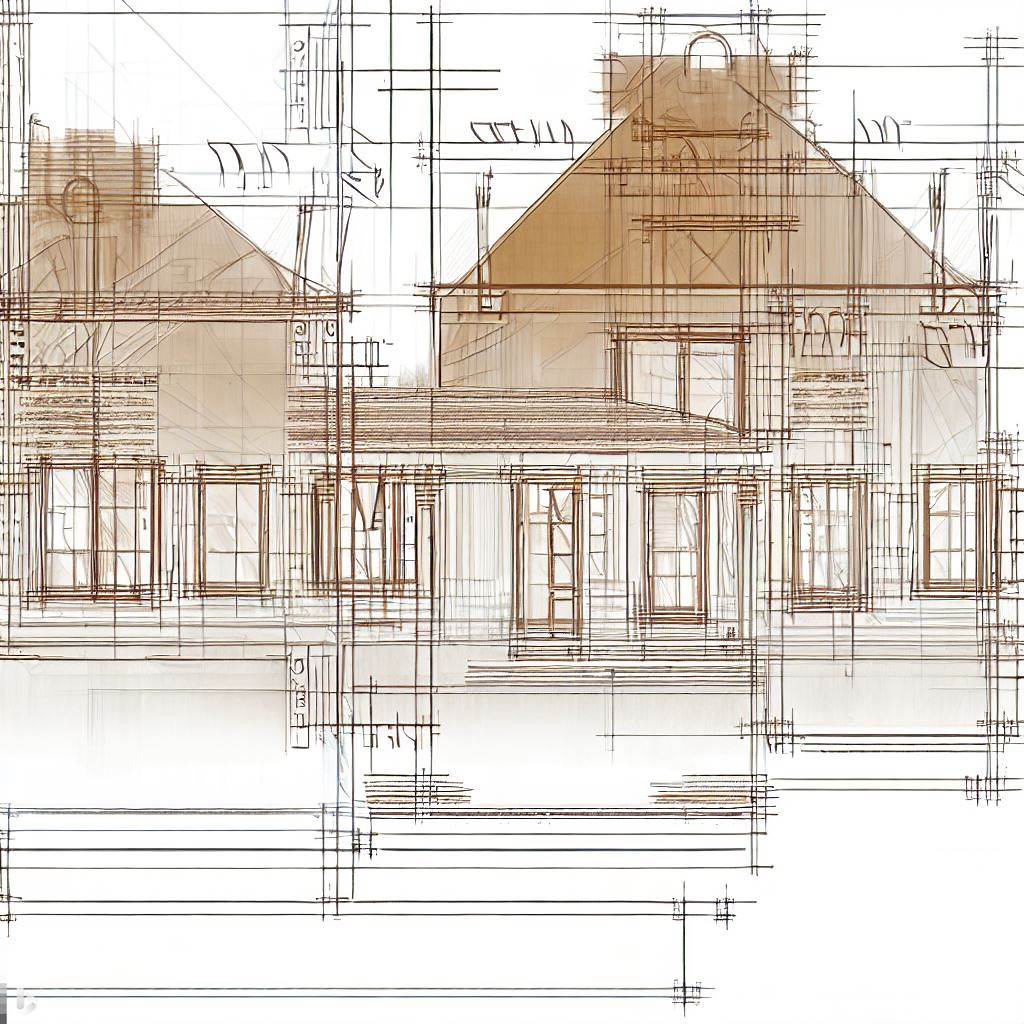How to Avoid a Renovation Nightmare in Toronto
You have likely heard the horror stories of home renovations that turn into nightmares. They could be featured prominently in renovation reality TV shows or, worse yet, from distraught friends and family. Renovation nightmares can be such a devastating, time-consuming and costly experience.
These projects usually start off with an optimistic outlook and a reasonable timeline and cost estimate, but become delayed and more costly from poor communication, a lack of accountability, or a schedule that wasn’t followed or updated, leaving the site unattended for days or weeks at a time. Delays and cost increases can also result from poor craftsmanship or additional work that was not properly factored into the original scope of work.
Each day seems to bring a new delay, and each new cost feels like an extra weight, sinking spirits—and savings—deeper into the abyss.
Yet, what’s striking is how often these renovation disasters could have been avoided. Rushing into a renovation without proper research, preparation, understanding and planning is often at the core of these renovation nightmares. To sidestep these pitfalls, a deliberate approach is key—solid planning and detailed designs need to lead the charge, well before the first hammer swings. This isn’t just about avoiding the bad—it’s anticipating everything you can and paving the way for the good, the kind of project that lives up to your renovation dreams.
Tips for successful renovation
Understand the Complexity of Your Entire Project
Like most things in life, knowledge is power. You don’t have to know the ins and outs of renovating, but you should understand the process at large. A large-scale renovation is a highly involved process with many decisions to be made, details to be clarified and orders to be placed. This requires thoughtful coordination and collaboration between homeowners, design teams, contractors and trade partners.
Having an understanding of how the scope of work and design choices can impact your project budget and timeline is crucial to setting goals and priorities. Recognizing how many decisions need to be made and how much time, and involvement, you would like to dedicate to this process is important when selecting a design team and contractor. You will be relying on them to set a schedule and guide you through the process. The ultimate goal for you and your renovation contractor should be to minimize the burden on you while maximizing the quality of your renovation project and personal experience.
Vet Your Contractor
Selecting the right contractor for your project is absolutely critical to your project’s success and your experience. Surprisingly, a common oversight in renovation projects is failing to thoroughly vet contractors. After an initial meeting, reaching out to multiple references provided by the contractor is an absolute must. Ideally, they can provide contacts for similar projects to understand their experience with similar jobs. Just because a contractor has completed several beautiful bathrooms, doesn’t mean they will be able to deliver a home addition. It also helps to speak with references that span a few years, so you can get a sense of how their work stands up over time.
If you are interviewing multiple contractors, be cognizant of estimates and timelines that are outliers. It is important to perform due diligence when selecting a contractor to ensure they are reputable, experienced, and reliable, but also to get a sense of their project management and communication processes. You also want to make sure that they have a reputation of meeting budget estimates.
You will be trusting your contractor with your home and you will want to ensure that you find someone who listens, understands and respects you and your goals. Don’t ignore warning signs, trust your gut!
Start with Proper Documentation
The success of a renovation project can be compromised by poor documentation. Without detailed design drawings, the accuracy of the quote and ability to complete the project to align with your vision will be in jeopardy. A vague scope of work, unclear contract details, and overlooked permits can lead to major problems down the road.
Along with the necessary architectural, structural and permit drawings, having a detailed interior design plan will help ensure that all the finishing touches are well planned and will fit the space and your style. Relying on your contracting team to advise and fill in the blanks on complex design decisions could lead to mistakes, delayed orders, and missed opportunities for design efficiencies.
Establish Clear Communication and Expectations
Poor communication can derail any renovation project. The lack of a defined timeline, poor project management, and sporadic updates can lead to a misalignment, broken trust and dissatisfaction. Implementing a robust communication plan with regular updates and using project management tools can help keep the project on track and foster transparency by centralizing information and making it easy to share.
Before your renovation begins, your contractor should outline how they will keep you updated on the project progress and changes to schedule and explain their standard procedures for addressing your questions, change orders and setting regular site meetings. You should have a very clear understanding of who is responsible for any upcoming decisions and relevant key dates, goals and benchmarks.
How the Pre-Construction Process Can Help You Avoid a Renovation Nightmare
What is a Pre-construction Process?
Pre-construction is a paid collaborative planning process that ensures a homeowner’s investment goals and project priorities are well understood by the contractor and design team.
It is an opportunity to explore all of the options for executing the project’s design plans, to find cost efficiencies, and to engage with all trade partners to identify any unknowns before the project begins. This reduces the risk of surprises, cost increases or delays during construction. The result of the process is an accurate fixed quote and reliable timeline based on a well defined scope of work.
There are four phases in a Pre-construction Process:
- Gathering project information
- Aligning the project scope with investment goals
- Refining the design through value engineering, and
- Finalizing costs and scope with the contractor and trade partners
How is Pre-Construction different from a Free Estimate?
A free estimate with allowances and contingencies can result in incorrect assumptions or design details and site conditions not being properly captured in the scope of work. This will often result in surprises, scope creep and escalating costs.
Partnering with a contractor who employs a collaborative Pre-Construction process allows the contractor to dedicate the time and resources necessary to fully consider your unique project and all relevant elements. This ensures that your vision is properly understood and planned from the outset; that what is promised at the beginning (cost, schedule, scope of work, service and communication) will carry through to the end.
Pre-construction planning can help mitigate your risks
Are you planning a renovation project but worried about the risks and potential delays? A pre-construction process can help you minimize those risks and ensure the success of your project.
With a detailed plan and thorough assessment of your needs before construction begins, you can eliminate costly assumptions, surprises and budget creep.
Why pay for a Pre-construction Process?
Eliminate Unknowns and Start Your Project with Confidence
A pre-construction process serves as a financial safeguard by creating a shared understanding of the project scope, and what it would take to financially align the physical build with the design goals. Beyond just focusing on costs, it adds real value to your renovation planning, helping to prevent unexpected issues and ensuring a smoother project flow.
Here, the general contractor provides an initial estimate, which is then fine-tuned with input through site visits and consultation with trade partners to deliver a comprehensive fixed cost quote. The designer, in turn, ensures that the aesthetic elements fit within this budget, contributing to financial accuracy and project goals. This unified approach significantly reduces the likelihood of misunderstandings (leading to costly errors), ensuring your project stays on budget, on time and stress-free.
Set Yourself Up for Success with a Team of Experts
You may take the time to vet your contractor through website reviews and references, but a Pre-construction Process gives you the opportunity to connect with the team that will actually do the work – you can see how the contractor and their crew, trades, and designer/architect interact and solve problems before your home turns into a construction site.
Having a chance to understand the efforts of your contractor and team as they prepare your project quote will give a very strong indication of the level of professionalism with which they would dedicate to your entire project.
This thorough and collaborative approach ensures a multi-faceted risk assessment. By pooling their expertise, the team can proactively address potential pitfalls, significantly reducing the likelihood of costly errors and delays in the renovation. Finding ways to avoid issues ahead of time will only help to reduce the stress you will experience during renovation.
Ensure your design can be built within your budget
There seems to be a common misconception that the planning of a renovation starts and ends with the architect or design team. Once you have your detailed design plans in place, all the contractor has to do is get to work, right? After all, the plans are right there!
The reality is that the design and architectural plans are the concept for the project, and it takes a skilled general contractor and their team of professional trades to piece together the execution.
The design phase is often seen as the realm of creativity and aesthetics, but in a well-managed Pre-construction Process, it’s also about maximizing the possibilities. The designer collaborates closely with the general contractor and trades to ensure that the design is not only visually appealing but also practical and achievable within the given budget and timeline.
This collaborative effort often involves multiple iterations and feedback loops. The trades might suggest alternative materials that are easier to source or work with, while the general contractor could offer logistical solutions to streamline the construction process. This results in a design that is both beautiful and buildable, optimizing both form and function. With such a major investment, a Pre-construction Process is a great opportunity to get transparency into the project scope and fixed costs before your property turns into a construction site.
Set Expectations for Communication and Service
The importance of effective communication in renovation projects cannot be overstated. A Pre-construction Process establishes an ongoing, open and transparent dialogue among the client, general contractor, trades, and designer.
Once in place, this approach to communication, understanding expectations and accountability will be evident and can easily be carried throughout the entire lifetime of the project. Regular meetings, updates, and consultations ensure that everyone is aligned and aware of project developments, contributing to streamlined communication.
This cohesive approach minimizes misunderstandings and fosters a sense of team unity. When all parties are in sync from the beginning, it creates a more efficient and harmonious building process, thereby enhancing the quality of the final product.
Big Projects Need Careful Planning and Transparency
Home renovations are large, complicated endeavours with a long list of moving parts. Relying on poorly detailed free estimates and best guesses can set the pathway to find yourself in a renovation disaster. Whether it’s budget creep, missed timelines, poor communication, or inferior quality, the root of the problem is uncertainty.
In-depth re-construction planning should be viewed as an essential service and carried out by a team of professionals. Provide yourself the certainty you have hired the right team, that your goals are understood, and that your designs will align with your budget.
By investing a small percentage of your renovation costs upfront and working with a qualified team on developing a Pre-construction Plan, you will position yourself for success.
The Pre-construction Process is far more than just a preliminary step; it’s a vital framework that sets the stage for a successful construction project. By focusing on risk mitigation, financial transparency, design optimization, and effective communication, it will give you confidence that your contractor has you and your project’s best interest at heart and that the cost and timeline of your project at the start of construction will be accurately reflected at the end.
Contact us today to talk about your renovation goals
At Oriel Renovations, we deliver what we promise. Our Pre-construction process will help make sure your project meets cost projections and detailed timelines, from initial planning to the final walkthrough, so your renovation journey is smooth and transparent.
Connect with us to discuss how our home renovation services will help you align your project goals with a clear, well-planned timeline, and take the first step towards a successful home renovation that marries timely completion with exceptional results.






How to ensure your older Toronto home renovation stays on time?
in Blog, Planning, Time, time-2You’re staring at cracked plaster walls, uneven creaky floors, and outdated fixtures of your century home and thinking, “It’s time for a renovation.” But let’s be clear: conducting major renovations of an older home isn’t a simple project. It’s a multi-month logistical challenge that involves detailed planning, hundreds of decisions, and a significant investment of time and money.